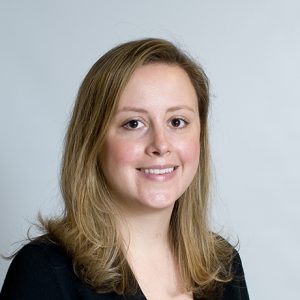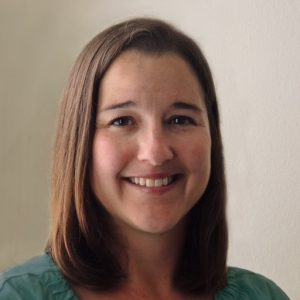Detect biomarkers associated with nonalcoholic fatty liver disease (NAFLD)
Detect biomarkers associated with nonalcoholic fatty liver disease (NAFLD)
Abstract
In this 1-hour discussion, learn how the SomaScan® Assay can be used to detect biomarkers associated with NAFLD—specifically, the identification of circulating proteins associated with fibrosis in NAFLD using a custom 5k-plex SomaScan Assay. Also discussed is the importance of identifying non-invasive biomarkers that improve clinical decision-making and drug development for NAFLD, and the strategies for multiplexed validation of candidate biomarkers discovered using the SomaScan Assay.

Kathleen Corey, MD, MPH, MMSc
Director of the Massachusetts General Hospital NAFLD program and an Assistant Professor of Medicine at Harvard Medical School

Rebecca Pitts
Principal scientist at the Novartis Institutes for BioMedical Research in Cambridge, Massachusetts
Detect biomarkers associated with nonalcoholic fatty liver disease (NAFLD)
A webinar presented by Kathleen Corey, MD, MPH, MMSc, and Rebecca Pitts
More webinars
WebinarBoutique Webinar Aptamers with protein-like side chains as a versatile tool for high-content proteomics
Proteins, encoded in 20,000 genes in humans, do much of the work in biology. Measuring proteins, which change in response to various perturbations and represent targets for almost all drugs, offers insights about the health status of an organism. Since proteins operate in complex networks rather than in isolation, measuring multiple proteins simultaneously offers richer insights compared to single protein measurements.
WebinarUsing Proteomics To Advance Understanding of Alzheimer’s Disease
Limited understanding due to its complex pathophysiology and lack of definitive biomarkers currently constrains the diagnosis and treatment of Alzheimer’s disease (AD). But new research is uncovering dynamic brain changes during Alzheimer’s progression, offering potential therapeutic targets. This webinar explores how proteomics and systems biology can be integrated to elucidate AD pathology.
WebinarPredictive modeling and reliable biomarker discovery in clinical omics studies
High-content omic technologies coupled machine learning methods have transformed the biomarker discovery process. However, the translation of computational results into scalable clinical biomarkers remains challenging. A rate-limiting step is the rigorous selection of reliable biomarker candidates among a host of biological features. Drawing examples from real-world clinical omics studies, I will introduce Stabl, a general machine learning framework that identifies a sparse, reliable set of biomarkers by integrating noise injection and a data-driven signal-to-noise threshold into multivariable predictive modeling.





